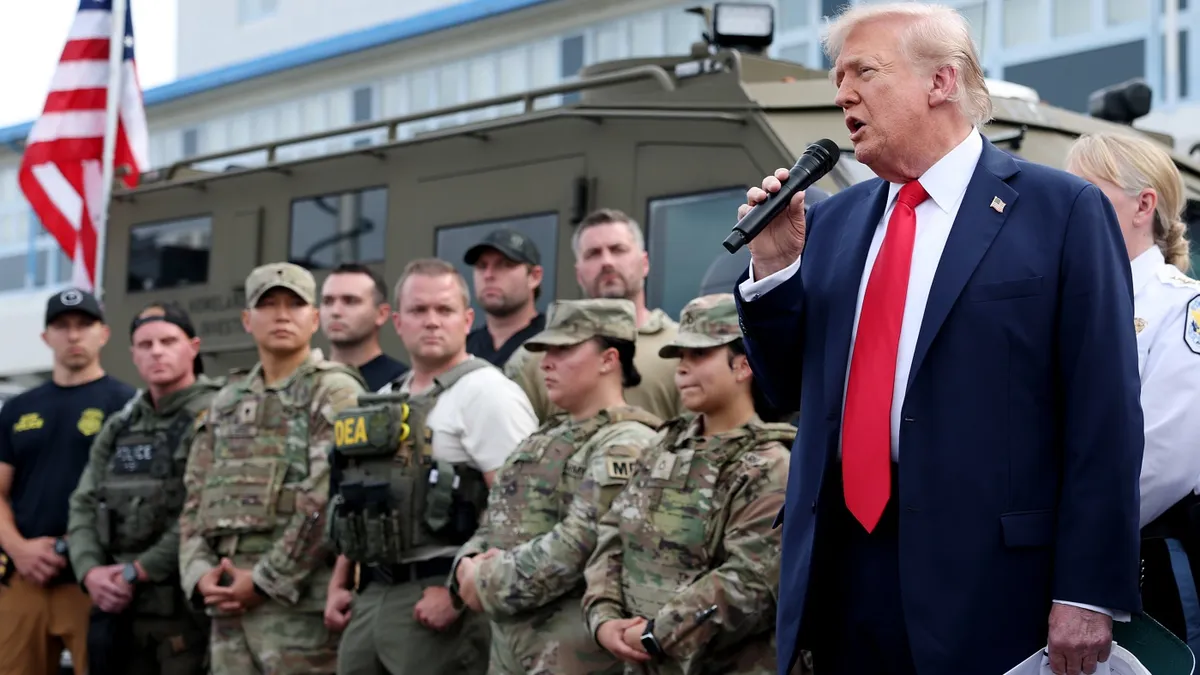
Veteran defense lawyers and law enforcement experts have been raising alarms about the potential for overreach since the federal government intervened in local policing decisions in Washington, D.C., nearly three weeks ago. These concerns came to a head inside the federal courthouse in the nation's capital on Monday, where tensions erupted in open court.
A federal judge dismissed a weapons case against a man, Torez Riley, who had been held in the D.C. jail for a week. U.S. Magistrate Judge Zia Faruqui described the search that led to Riley's arrest as “the most illegal search I've ever seen in my life.” He expressed disbelief at the circumstances surrounding the case, stating, “A high school student would know this was an illegal search.”
Judge Faruqui pointed out that Riley appeared to have been targeted because he is a Black man carrying a heavy-looking backpack. Court documents revealed that law enforcement officers claimed to have discovered two weapons in Riley's crossbody bag, despite his prior conviction on a weapons charge. This case comes at a time when there is significant scrutiny of police and prosecutors in the District of Columbia.
In light of rising crime rates, President Trump has ordered National Guard members and federal law enforcement officers to take action in the city. He signed a new executive order aimed at ensuring that more individuals arrested in D.C. face federal charges and are held in pretrial detention whenever possible. Newly appointed U.S. Attorney for the District of Columbia, Jeanine Pirro, has instructed her prosecutors to pursue maximum charges against defendants and to request their detention.
On Monday morning, instead of holding a detention hearing, the U.S. Attorney's office moved to dismiss the case against Riley. The government stated that the dismissal was in the “interests of justice.” A spokesperson for the Department of Justice revealed that Pirro made this decision after reviewing body camera footage of the arrest. Judge Faruqui, who has extensive experience as a former prosecutor in the same office, expressed outrage over the initial charges against Riley, questioning how they were deemed appropriate.
In a statement to NPR, Pirro refuted the judge's criticism, suggesting that Faruqui has a history of leniency towards dangerous felons. She emphasized that the judge’s comments reflect a consistent pattern in his handling of cases involving individuals with illegal firearms. Judge Faruqui noted that on the same day he handled Riley's case, he had seven other cases on his docket involving weekend arrests, indicating a significant backlog in the court system.
Following Riley's arrest, police also detained an Amazon delivery driver, Mark Bigelow, who was charged with resisting an Immigration and Customs Enforcement officer. Another individual, Edward Dana, faced charges for making threats against the president while intoxicated. Despite being unarmed, Dana underwent a mental health assessment, and a magistrate initially ordered his release, a decision that was later upheld by Chief Judge James Boasberg.
During the proceedings, Assistant U.S. Attorney Benjamin Helfand chose not to disclose specific details about the circumstances that led to the dismissal of Riley's case. However, Judge Faruqui praised Helfand for his professionalism in moving to drop the charges. The judge warned that relying on insufficient or unlawfully obtained evidence for charges would ultimately compromise public safety. He stated, “If the policy now is to charge first and ask questions later, that's not going to work.”
Outside the courtroom, Riley’s pregnant wife, Crashawna Williams, expressed her struggles since her husband’s arrest, highlighting the strain it has put on her responsibilities for their three children. Public defender Elizabeth Mullin emphasized that the joint search and arrest conducted by D.C.'s Metropolitan Police officers and federal agents was clearly unlawful.
The ongoing situation in Washington, D.C. raises critical questions about law enforcement practices and the balance between public safety and civil rights. As the eyes of the world are on this city, the implications of these legal proceedings will likely resonate beyond the courtroom.